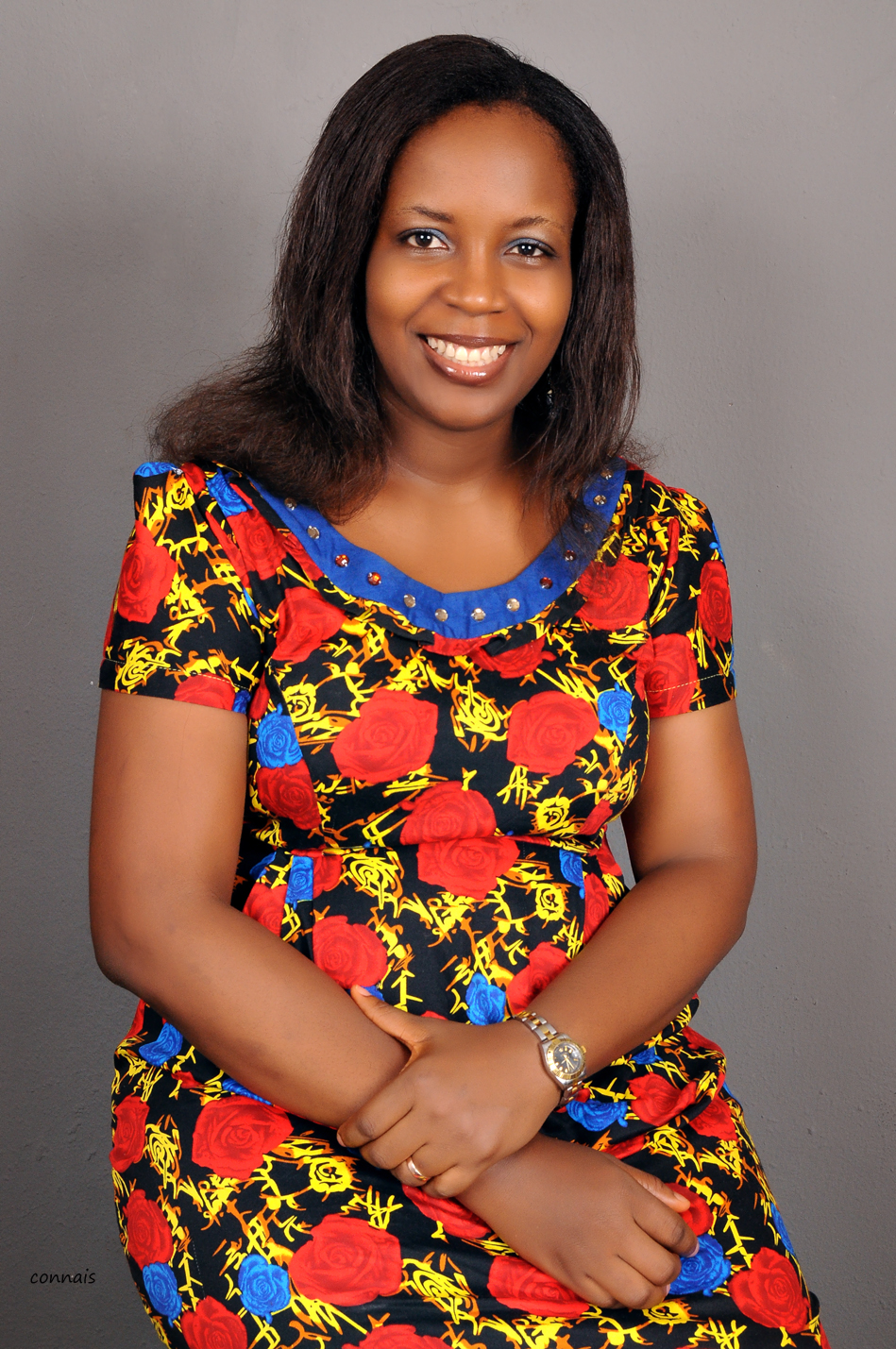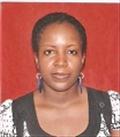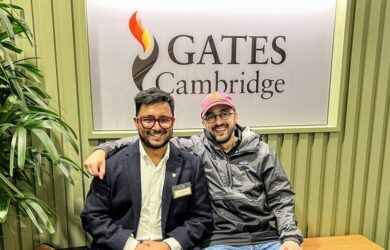
Chioma Ngonadi will research the past and future of farming in Africa.
"Little is known about the people who used or may have fashioned iron technologies. The iron did not fall from the sky. Who were these people, how did they live, how did they use the land, how has the environment changed through time and how did people adapt to this, how did farming develop over time - these are the questions that interest me."
How did farming develop in south eastern Nigeria and what are the implications today? Chioma Ngonadi's PhD will take a broad look at how the agricultural tradition became established in Nigeria over the last 3,000 years. Through ethnography, survey and excavation, she hopes to analyse broad-scale changes in agricultural practices to understand how people lived and how they adapted to changes in the environment.
She says our current understanding of the early development of agriculture in south east Nigeria has largely relied on indirect evidence including grinding equipment, pottery, stone bowls, iron working relics and other related finds. As data emerges that helps archaeologists piece together how a farming system developed, she is keen to understand this in the broader context of environmental change and adaptation. She says that understanding the longer-term histories of African farming systems may have much to contribute to present day environmental management including of soils and resources, such as indigenous ecological knowledge.
Chioma will do her fieldwork in Lejja in south eastern Nigeria which has some of the oldest iron working remains in Africa. “A lot of slag remains have been found there and research has been carried out there on the technology of iron smelting, especially by Dr Pamela Ezeuzomaka,” she says. “But little is known about the people who used or may have fashioned such iron technologies. The iron did not fall from the sky. Who were these people, how did they live, how did they use the land, how has the environment changed through time and how did people adapt to this, how did farming develop over time – these are the questions that interest me. What made people leave hunting and gathering and turn to farming?"
Childhood
Chioma [2015] was born in Onitsha in Anambra State in south-eastern Nigeria. Her mother is a retired nurse and her late father was a banker.
Chioma, who has two siblings, went to the local state primary and secondary schools and was encouraged to study by her parents. Her main interest at school was science, particularly biology. She also read avidly. Her father passed on a love of literature to his children. Chioma says that she spent many hours reading novels and went to the library regularly from the age of seven.
Archaeology
In 2001, after finishing secondary school, she did a diploma in social work and community development. The course lasted two years and during it she became interested in archaeology through watching Discovery Channel and reading about it. Archaeology had also formed part of her social and cultural studies at secondary school.
She decided to apply to the University of Nigeria Nsukka to do an archaeology degree. Because she had done the diploma, the degree was only three years, with her second and third years spent doing fieldwork. In her last year, she did a project focusing on some objects displayed in Nri museum, looking at how they relate to the current beliefs and traditions of the Igbo community. Chioma interviewed the museum’s curator as well as members of the community for the project. She also took part in a dig led by Professor Felix Chami in Lejja.
After finishing her degree in 2008, for which she got a first class honours, she won an African Archaeology Network scholarship to the University of Dar es Salaam, Tanzania for her Masters degree in Archaeology. There she studied Mwangia pottery, a variant of Early Iron Working pottery (EIW) and compared it to the subsequent Triangular Incised Wares (TIW) in Rufiji region, Tanzania. The research was aimed at establishing the relationships, similarities and differences between the technological materials of the two traditions by characterising them in terms of decoration attributes, style and fabric. Through analysis of pottery she established general overlaps and differences in pottery attributes between the two types. The analysis showed that TIW has closer cultural affinities to Mwangia than the preceding traditions, Limbo and Kwale.
Cambridge
She received a first class master’s and returned to the University of Nigeria to teach in the Department of Archaeology. Before she could start working she had to do her National Youth Service.
Chioma was keen to continue her studies and knew of the University of Cambridge’s international reputation. She had one toddler and was pregnant with her second when she applied to do her PhD at Cambridge after being directed to her supervisor Dr Matthew Davies. “He found my work interesting and helped me to work on my proposal. He also told me about the Gates Cambridge scholarship,” she says.
Chioma was interviewed for the scholarship by Skype when her baby was just two months old. She was successful. However, just days before she and her family were due to fly to Cambridge she was told that her husband John and children had been denied their visas. Chioma didn’t want to turn down a lifetime opportunity or miss the Gates Cambridge orientation so, with the support of her husband, she made the difficult decision to come to Cambridge without her family while the visa issue was sorted. That meant stopping breastfeeding her baby straight away. With the support of the Gates Cambridge Trust, the McDonald Institute for Archaeological Research and the University’s International Office the visa issue has been sorted and her family have been able to join her in Cambridge.
When she has finished her PhD Chioma hopes to go back to Nigeria and use the skills she has learnt to develop the next generation of African archaeologists. "I want to give them the benefit of the opportunities I have had," she says.

Chioma Ngonadi
- Alumni
- Nigeria
- 2015 PhD Archaeology
- King's College
I was born and raised in Anambra State, southeastern Nigeria and bagged a First Class Honors in Archaeology from University of Nigeria, Nsukka. In 2010, I completed my MA in Archaeology from the University of Dar es Salaam, Tanzania funded by SIDA/SAREC through African Archaeology Network. My MA research was on a comparative study of the pottery from sites in coastal Tanzania. I focused on Mwangia pottery, a variant of Early Iron Working pottery (EIW) and compared it to the subsequent Triangular Incised Wares (TIW) tradition. Analysis of pottery showed that TIW has closer cultural affinities to Mwangia than the preceding traditions (Limbo and Kwale). My love for archaeology has taken me to Comoros Island, Uganda and Tanzania. At Cambridge, my PhD thesis seeks to examine the origin and development of farming over the longue duree in Lejja,southeastern Nigeria. Through ethnography, survey and excavation, my study will establish and outline a cultural sequence with focus on the last 3,000 years and thus analyze broad scale changes in agricultural practices of these communities over this period. I am excited to join the Gates community and I look forward to developing my skills and knowledge in order to have a lasting career in Archaeology.INTERESTS: Reading, writing, volunteering, watching football, interesting movies, scrabble, visiting archaeological sites and museums.
Previous Education
UNIVERSITY OF NIGERIA, NSUKKA
UNIVERSITY OF DAR ES SALAAM












